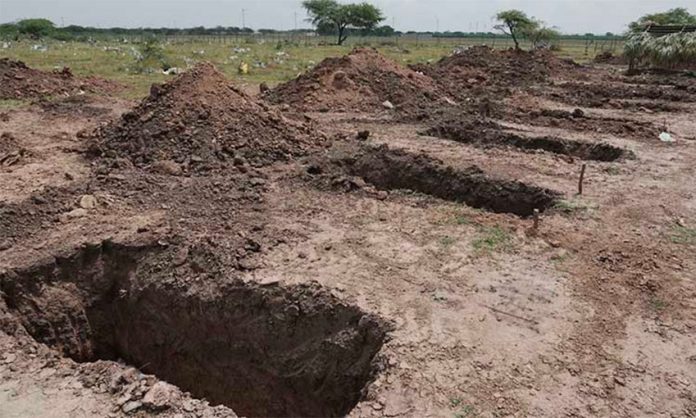Three international organizations launched an online platform on Tuesday to aid the identification of human remains found in Mexico.
The Mexico Office of the United Nations High Commissioner for Human Rights (OHCHR), the Mexico and Central America delegation of the International Committee of the Red Cross and the German development agency GIZ launched the website identificaciónhumana.mx (Human Identification).
“In Mexico there is a forensic emergency recognized by the authorities themselves. One of the main difficulties in combatting it is the lack of a technical consensus in human identification practices,” the organizations said in a statement.
In that context, the organizations said they joined forces to create a digital platform that “seeks to promote a technical and multidisciplinary discussion … [aimed at] the mass identification of unidentified deceased people.
The Spanish language website includes detailed information about the process to recover and identify bodies, which are often found in mass graves in Mexico.
Written by academics and forensic activists, the information seeks to “document best practices in matters of forensic identification to reduce delays and provide certainty to families,” the organizations said.
Finding and identifying missing persons is “a daily challenge that requires effective and coordinated search mechanisms as well as high-quality forensic processes that make provision for the participation of families,” they said.
“… The serious challenge Mexico faces in forensic matters requires appropriate collaboration between institutions involved in the search for [missing] people as well as the participation of experts, academia, collectives and families,” the organizations said, adding that sufficient human, material and economic resources are also needed.
While the creation of a website that provides advice about the body identification process appears on the surface to be positive news, the fact that it is needed is evidence of just how dire the situation in Mexico is in terms of the accumulation of unidentified corpses. That such a site is required also amounts to a damning assessment of Mexican forensic authorities, who have failed to identify tens of thousands of bodies found in recent years.
“There are currently about 39,000 unidentified bodies in forensic medical services [morgues] or buried anonymously in public cemeteries in the 32 states,” the international organizations said.
“The figure of 39,000 unidentified deceased people should be sufficient reason to critically review the functioning of the forensic system,” said Maximilian Murck, director of a GIZ project aimed at strengthening the rule of law in Mexico.
“One of the main rule of law tasks in Mexico is to draw up and implement pragmatic solutions for mass human identification,” he said.
Missing people’s rights – including their right to an identity – must be guaranteed by the state, said OHCHR Mexico representative Guillermo Fernández-Maldonado.
However, authorities in a majority of Mexican states don’t have the capacity to identify all of the deceased bodies in their morgues, Spanish newspaper ABC said in a report. Homicide numbers increased significantly after former president Felipe Calderón launched a militarized war on drug cartels in late 2006 and continued to rise during the governments led by Enrique Peña Nieto and Andrés Manuel López Obrador.
The international organizations noted that there are more than 80,000 missing persons in Mexico, adding that it can be assumed that the bodies of many of those people are among the 39,000 unidentified corpses.
They said they were hopeful that the information contained on their new website “will be useful for the different actors that participate in the search and identification of people.”
